Discover Yarrow Essential Oil
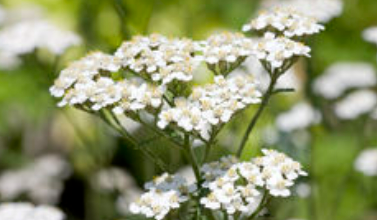
Yarrow (Achillea millefolium) is a perennial herb with a long history of use in traditional medicine. Yarrow essential oil is derived from the flowers and leaves of the yarrow plant and is known for its many health benefits. In this article, we will explore the main chemical compounds of yarrow essential oil, its health benefits, and how to use it safely and effectively.
Extraction Process of Yarrow Oil
Yarrow oil is extracted through a process called steam distillation, which is a common method used to extract essential oils from many different plant species.
The process begins with harvesting the yarrow plant. The aerial parts of the plant, including the leaves, stems, and flowers, are typically used for oil extraction. The plant material is then dried and crushed to facilitate the release of essential oils during the distillation process.
Next, the plant material is placed in a distillation chamber with water. Steam is then passed through the chamber, which causes the essential oils in the plant material to be released and carried along with the steam.
The steam and essential oil mixture is then passed through a condenser, which cools the steam and causes it to condense back into a liquid. The essential oil separates from the water and is collected in a container.
Once the oil is collected, it may undergo further processing to remove any remaining water or impurities. The resulting yarrow essential oil is a concentrated, aromatic liquid that is rich in the plant's natural compounds and fragrance.
It's important to note that the quality and potency of yarrow oil can vary depending on several factors, including the quality of the plant material, the extraction process, and the distillation time. Therefore, it's important to choose high-quality yarrow oil from a reputable source to ensure the best results.
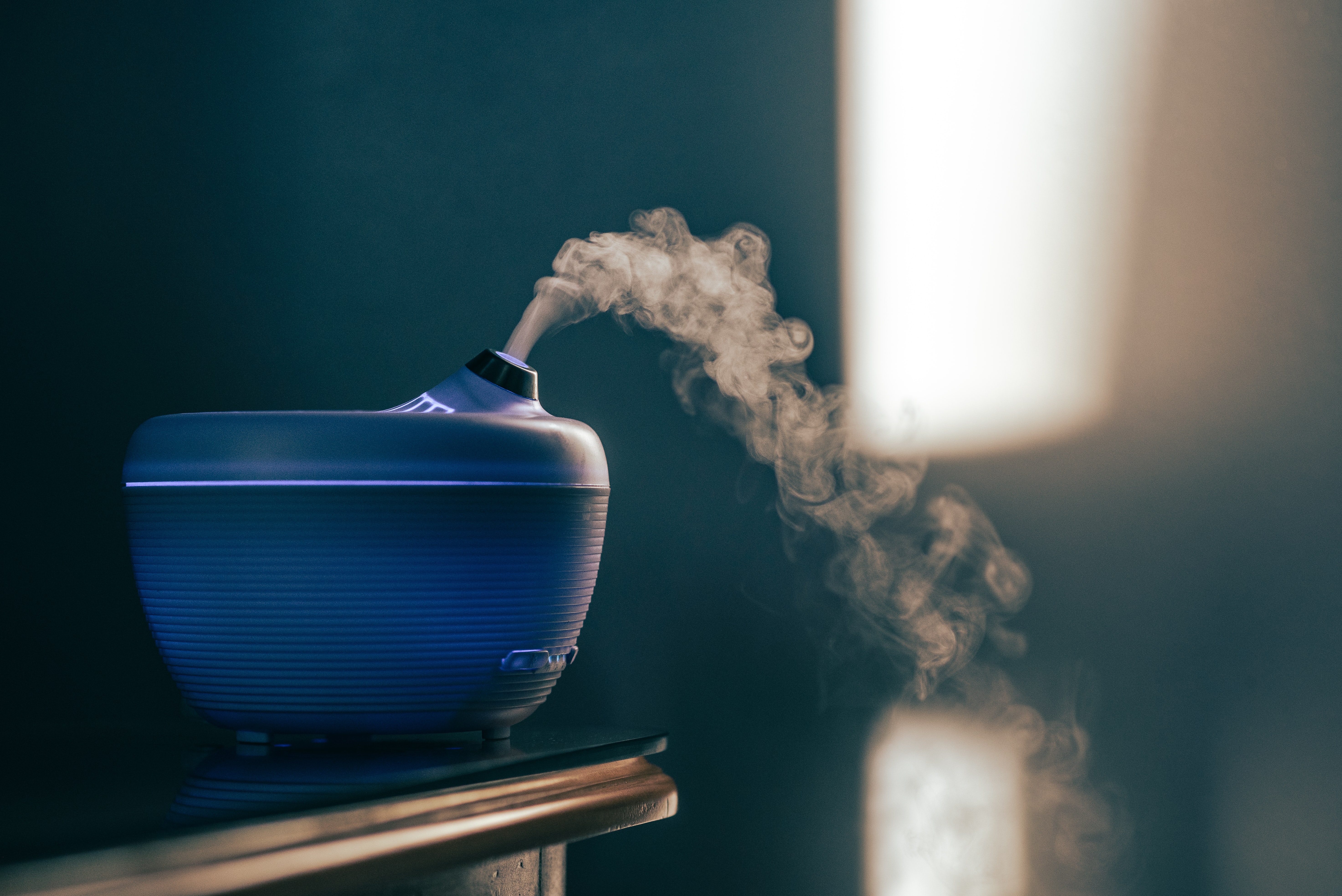
Chemical Compounds In Yarrow Essential Oil
Yarrow essential oil is rich in chemical compounds that contribute to its therapeutic properties. Some of the main chemical compounds found in yarrow essential oil include:
- Chamazulene - A compound that gives the oil its blue color and has anti-inflammatory properties.
- Sabinene - A terpene that has antimicrobial and antioxidant properties.
- α-Pinene - A terpene that has anti-inflammatory and analgesic properties.
- Camphor - A compound that has antispasmodic and anti-inflammatory properties.
- β-Pinene - A terpene that has anti-inflammatory, analgesic, and antispasmodic properties.
- 1,8-Cineole - A terpene that has antiviral, antibacterial, and anti-inflammatory properties.
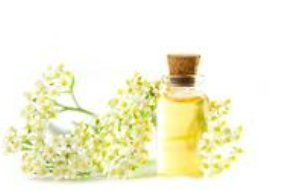
What Are The Health Benefits of Yarrow Essential Oil?
- Reduces Inflammation - Yarrow essential oil has anti-inflammatory properties that make it an effective natural remedy for reducing inflammation and pain. It can be used topically to relieve muscle pain and joint stiffness.
- Promotes Skin Health - Yarrow essential oil has antiseptic and astringent properties that make it effective in treating skin conditions such as acne, eczema, and dermatitis. It can also promote wound healing and reduce the appearance of scars.
- Improves Digestion - Yarrow essential oil can be used to stimulate digestion and relieve digestive discomfort. It can also help to reduce symptoms of irritable bowel syndrome (IBS) and other digestive disorders.
- Menstrual Cramp Relief - Yarrow essential oil has antispasmodic properties that make it an effective natural remedy for relieving menstrual cramps.
- Alleviates Stress and Anxiety - Yarrow essential oil has a calming and relaxing effect on the mind and body. It can be used in aromatherapy to promote relaxation and reduce feelings of stress and anxiety.
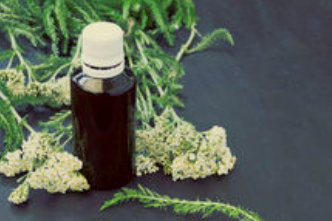
What are the best ways to use Yarrow Essential Oil?
Yarrow essential oil can be used topically, aromatically, or internally. However, it is important to use it safely and under the guidance of a qualified aromatherapist or healthcare practitioner. Here are some ways to use yarrow essential oil:
- Topical Use - Mix a few drops of yarrow essential oil with a carrier oil such as coconut oil or jojoba oil and apply it to the skin to relieve muscle pain, joint stiffness, or skin conditions.
- Aromatherapy - Diffuse yarrow essential oil in a diffuser to promote relaxation and reduce feelings of stress and anxiety.
- Internal Use - Yarrow essential oil can be taken internally to promote digestion and reduce symptoms of digestive disorders. However, it is important to consult with a healthcare practitioner before using yarrow essential oil internally.
What does Yarrow smell like?
The smell of yarrow essential oil is often described as sweet, herbaceous, and slightly bitter. It has a fresh, green aroma with floral undertones. The oil also has a distinctive earthy and spicy note, which gives it a complex and interesting fragrance. Some people may detect a slight medicinal or camphorous scent in the oil, which is common in many essential oils. Overall, the aroma of yarrow essential oil is pleasant and uplifting, making it a popular choice in aromatherapy.
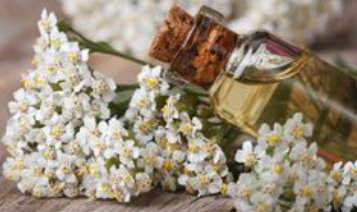
What other essential oils does Yarrow Essential Oil blend well with?
Yarrow essential oil blends well with many other essential oils, including:
- Lavender
- Frankincense
- Geranium
- Roman Chamomile
- Clary Sage
- Bergamot
- Lemon
- Juniper Berry
- Rosemary
- Peppermint
These essential oils can complement the aroma of yarrow oil and enhance its therapeutic properties. For example, lavender and clary sage can help to promote relaxation and reduce stress when combined with yarrow oil. Frankincense and geranium can help to improve skin health and reduce inflammation when used together with yarrow oil. Experimenting with different blends can help you create a unique and personalized aromatherapy experience.
What's special about Yarrow and Pomegranate Essential Oil Blend?
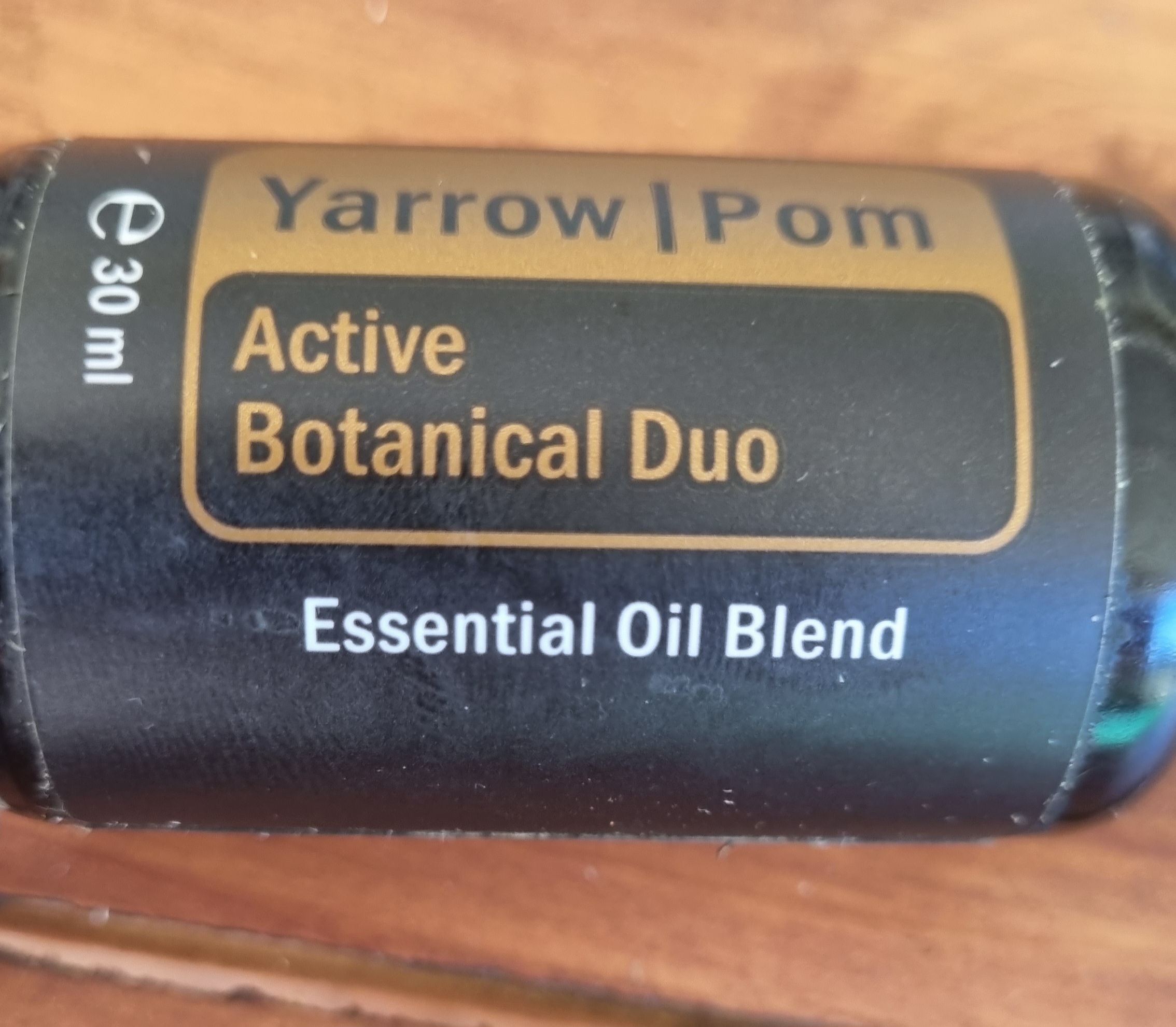
Yarrow oil and pomegranate oil are two natural oils that are known for their skin benefits. Blending these oils together can create a powerful combination that can help to improve skin health in several ways.
Yarrow oil has anti-inflammatory and antimicrobial properties that make it useful in treating various skin conditions such as acne, eczema, and psoriasis. It is also known to have astringent properties that can help to tighten the skin and reduce the appearance of fine lines and wrinkles.
Pomegranate oil is rich in antioxidants and has been shown to have anti-aging effects on the skin. It can help to protect the skin from environmental stressors, such as UV radiation and pollution, and promote skin regeneration.
When yarrow oil and pomegranate oil are blended together, they can work synergistically to provide even greater skin benefits. The combination of yarrow oil's astringent and antimicrobial properties with pomegranate oil's antioxidant and anti-aging effects can help to improve skin tone and texture, reduce inflammation, and promote healthy, youthful-looking skin.
Overall, blending yarrow oil with pomegranate oil can create a potent skin care product that can benefit many different skin types and conditions.
In conclusion, yarrow essential oil is a natural remedy that offers many health benefits. Its chemical compounds provide anti-inflammatory, analgesic, antimicrobial, and antispasmodic properties that make it effective in treating a variety of health conditions. However, it should be used with caution and under the guidance of a qualified aromatherapist or healthcare practitioner. With proper use, yarrow essential oil can be a valuable tool in promoting health and wellness.
If you want tips on natural wellness, you can get them straight to your inbox.

Enter your email below and I’ll share new articles, reflections, and practical insights as they’re published.


